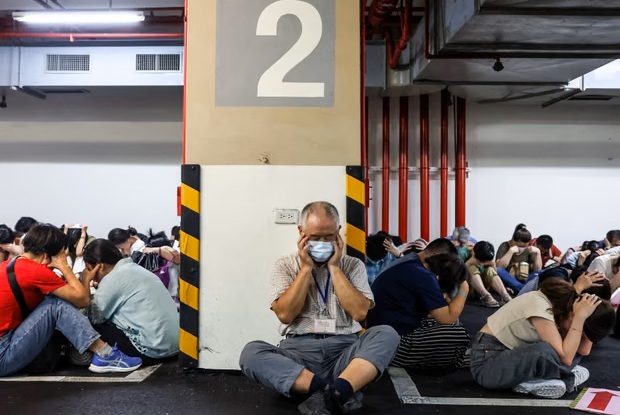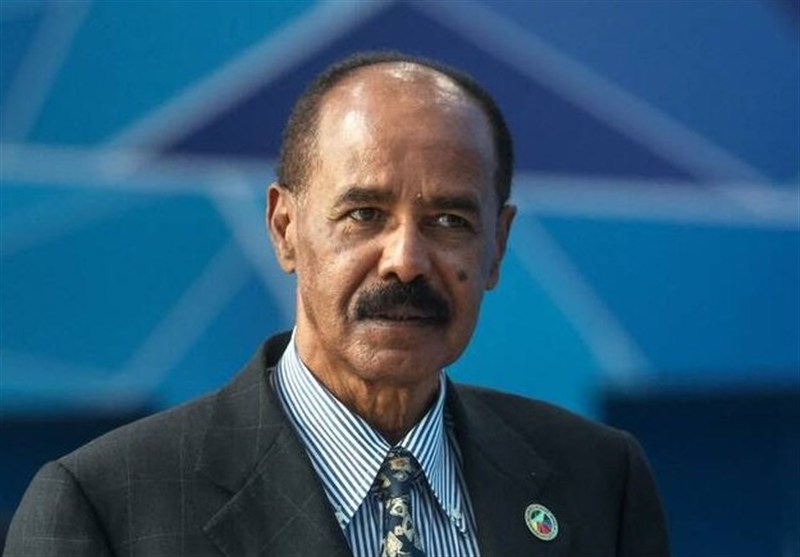With the growing possibility of a Chinese attack on Taiwan, the government has simulated its annual exercises differently, with an atmosphere very close to a real, full-scale war.
As the likelihood of an imminent Chinese military attack on Taiwan intensifies, the Taiwanese government is actively preparing public opinion for such an event. In addition to military forces, ordinary citizens are now participating in defense drills.
It’s widely known that people in Taipei usually walk at a relaxed pace. However, at 1:27 PM on a recent Thursday, citizens in crowded areas of the capital were forced to run. They knew they had only three minutes to reach a shelter. At 1:30 PM, ear-splitting sirens blared across the city, and a message was sent to mobile phones warning: “The enemy has launched a missile attack on northern Taiwan.”
During the drill, cars and buses pulled over, and people rushed toward the nearest metro station. Mr. Liu, a 70-year-old citizen who had difficulty running, commented on the exercise: “I support these drills because they help people feel safe and teach them what to do if China ever attacks.”
Military and urban defense drills have become increasingly important for Taiwan in recent years as Chinese President Xi Jinping more forcefully pursues the annexation of Taiwan. As the flames of war spread in Ukraine and the Middle East, simulating a war scenario in Taiwan has also drawn closer to reality.
To enhance civilian resilience, this year, with government cooperation, private companies and chain stores have also been integrated into urban defense exercises. Taiwan’s annual military exercises have also doubled in terms of duration and scope.
In the past, these drills were typically confined to military bases, remote islands, or Taiwan’s coast, primarily to showcase Taiwan’s key capabilities against the Chinese threat. However, this year they have moved closer to the daily lives of ordinary citizens. Recent developments include urban warfare simulations on streets and intercity bridges, repelling attacks on airports, and the installation of new missile systems on Taipei’s riverside bike path.
In the recent drill, over 20,000 reservists, along with 52,000 emergency responders, tested their readiness. To date, Taiwan has trained over 4 million of its citizens in rescue and relief operations.
The Guardian previously reported that the Taiwanese government is considering plans to convert chain stores into military and aid centers in the event of a wartime emergency. Additionally, taxi drivers are undergoing training to serve as a reserve police force in wartime situations.
TH Schee, a Taiwan-based civil defense expert, believes this drill represents a significant shift in Taiwan’s military strategy, as the Taiwanese government previously claimed it would defeat the Chinese army on its shores.
Taiwanese President Lai Ching-te, since coming to power, has been strengthening the armed forces, tightening security laws, and prioritizing defense and civilian resilience against a potential Chinese attack.
During a visit to a field hospital set up in a high school, he stated, “Taiwan must be prepared to face geopolitical changes and external threats.”
Ying-Yu Lin, a strategic studies expert at Tamkang University in Taiwan, says, “This drill sends a clear message to the public: war is not as far away as we think.”
However, many challenges remain for the Taiwanese government’s civil defense plan. For instance, nearly 100,000 shelters, including underground spaces and parking lots, lack proper ventilation and emergency power supply. Some also believe that the government lacks specific and effective guidelines beyond sending people underground.
The Chinese Communist Party, closely monitoring the situation, called the drill “a futile movement” and increased the number of fighter jets and warships that violate Taiwan’s territorial airspace.
Taiwan’s president noted that these drills are not provocative and are conducted to prepare for military and political pressures from major powers.



